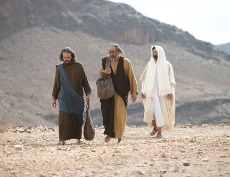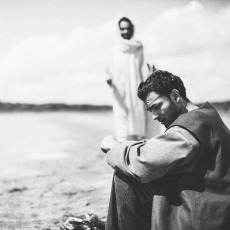Scripture
Matthew 6:34 MSG
Give your entire attention to what God is doing right now, and don’t get worked up about what may or may not happen tomorrow. God will help you deal with whatever hard things come up when the time comes.
Consider
When we’ve been stung by an unexpected painful event, we may try to anticipate what terrible thing might happen next so that we can somehow armor ourselves against it. The problem is, we get so good at visualizing what might happen that we start believing it will happen, and we only add to our distress.
- If someone hurts us, we fear being hurt again.
- If someone betrays us, we anticipate another betrayal.
- If we’ve been cheated or lied to, we worry how to protect ourselves from being fooled a second time.
Wounds inflicted by someone we know and trust catch us off guard and expose our vulnerabilities. We may feel embarrassed by our gullibility and compelled to withdraw our trust from a relationship. Instinct to protect ourselves kicks in and fuels our imagination. We play out scenarios in our heads and get ourselves worked up over anticipated pain and offenses that may never happen.
Instead of protecting us, however, such anxiety-induced behaviors often make things worse. We blur the lines between actual and imagined offenses. Instead of believing the best about someone, we may assume the worst and act on faulty presumptions just so we can feel safe. Tragically, the very outcome we fear and dread can become more likely as we act on the firm belief that it will happen.
Jesus warns his disciples not to anticipate trouble. In our finiteness, we cannot see into the future nor into another person’s mind and heart as only God the Father can do. Instead, we are to attend to the present, face every circumstance with faith and obedience as followers of Christ, and trust God to see us through whatever comes next.
Pray
Loving Father, when conflict makes me feel exposed and vulnerable, anxiety about what might happen next can take control of my mind and drive me deeper into fear and defensiveness. Be my hiding place at such times. Take control of my imagination, and instead of visualizing trouble, let me see how you have helped me in the past. Replace my arrogance with the realization that I cannot see into other people’s hearts no matter how well I think I know them.
Reflect
Psalm 32:7; 1 Peter 5:7
Ponder
How might my anticipating trouble actually make it more likely to happen?








